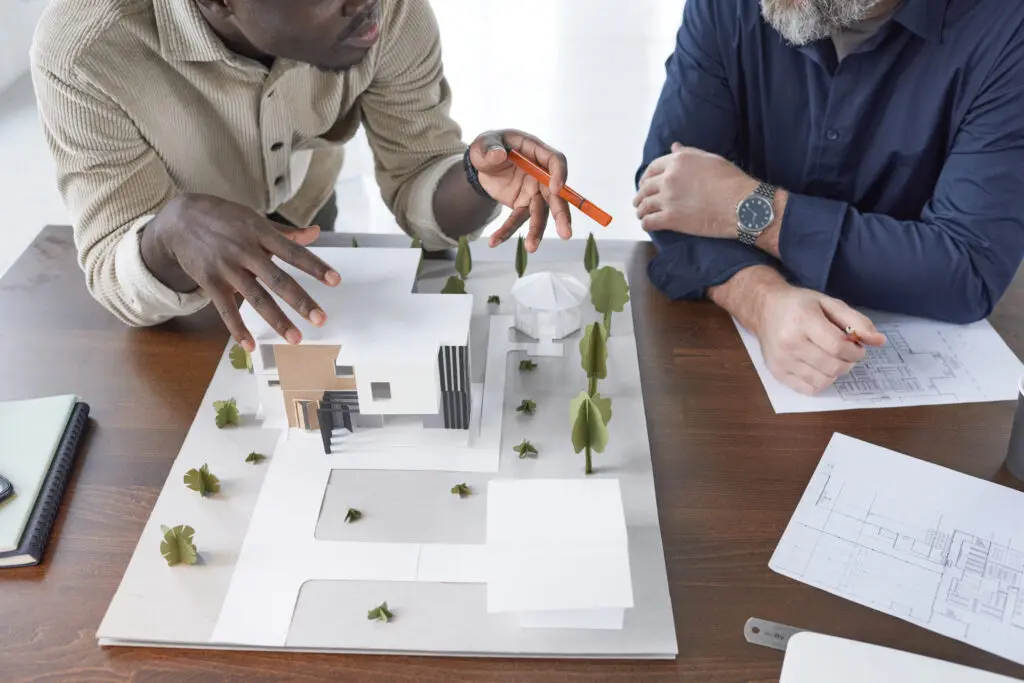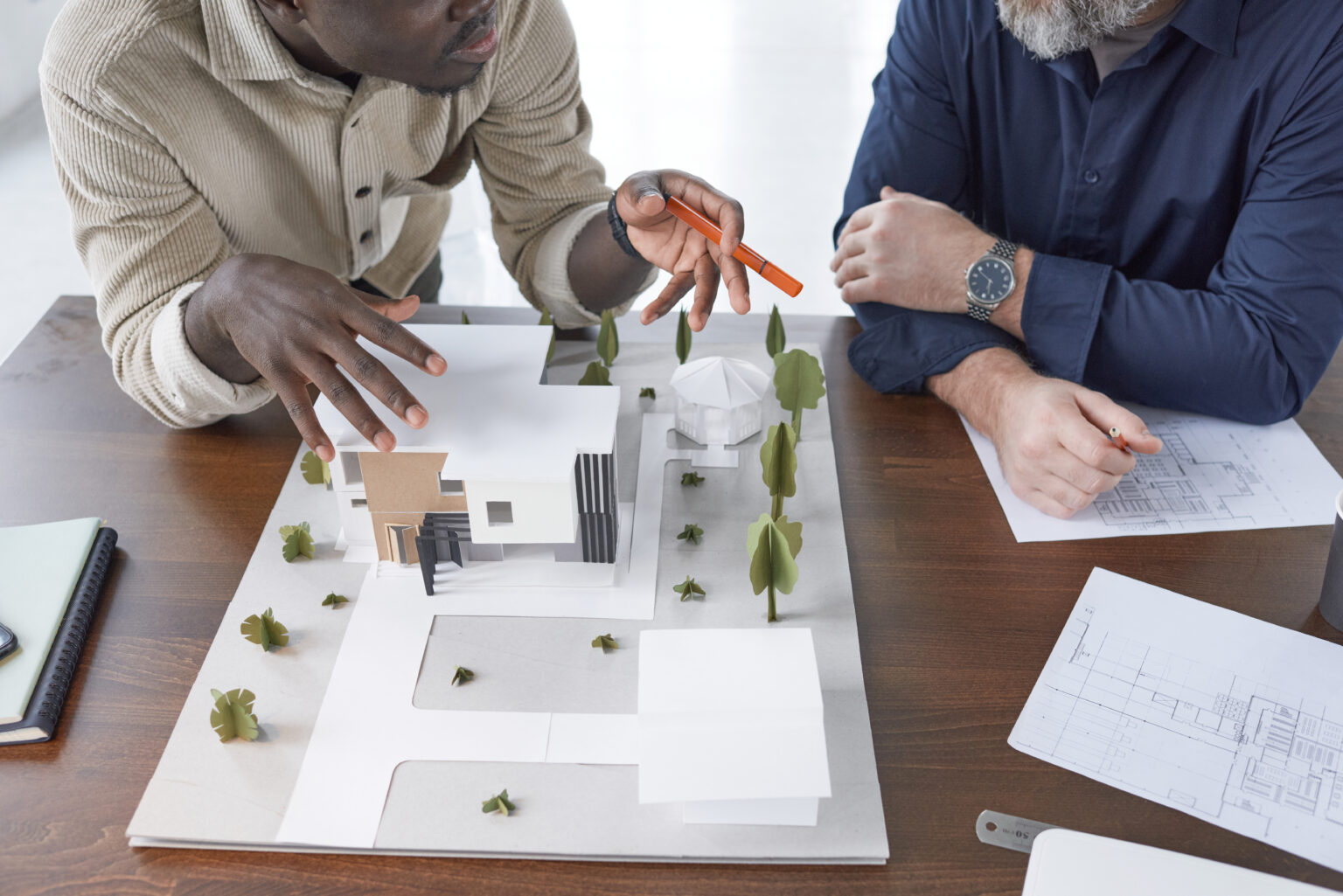
Finding a Sustainable Architect
Here in Massachusetts, the demand for sustainable energy building projects is on a significant rise. With environmental concerns and energy efficiency becoming paramount, selecting the right architect for such projects is crucial. A valuable resource in this quest is Boston Magazine’s list of sustainable design firms, which provides insights into some of the top players in this field.

Sustainable Architect
Understanding Sustainable Architecture
Sustainable architecture is more than a trend; it’s a commitment to reducing environmental impact through energy-efficient and eco-friendly design. In Massachusetts, this approach is not just about building green; it’s about creating spaces that harmonize with the local climate and ecosystem, ensuring long-term sustainability.
Criteria for Selecting a Sustainable Architect
When choosing an architect for a sustainable project, consider their expertise in green design and familiarity with Massachusetts’ unique environmental conditions. It’s also essential to assess their experience with green certifications like LEED or Passive House, ensuring they can meet the specific standards your project requires.
Your first choice should be an architect or architectural firm that specializes in sustainable building projects of the size and scope you are interested in, or is interested in becoming a sustainable architect. Also, energy efficient renovations are substantially different than new sustainable construction, so again you should seek professionals with the appropriate experience. For a primer on renovating older housing stock to passive house standards, see our post on retrofitting older homes to net zero standards or our post on passive house resources.
Additional criteria:
LEED Certification Experience: Experience in designing buildings that meet LEED (Leadership in Energy and Environmental Design) standards is crucial.
- Knowledge of Other Green Building Standards: Familiarity with other standards like Passive House, WELL, or Living Building Challenge can be beneficial.
- Track Record of Certified Projects: An architect with a portfolio of projects that have achieved green certifications is indicative of their capability in sustainable design.
- Portfolio of Sustainable Projects: Review their past projects to assess their experience in sustainable design.
- Client Testimonials and Reviews: Feedback from previous clients can provide insights into the architect’s approach and success in delivering sustainable projects.
- Awards and Recognition: Accolades in the field of sustainable architecture can be a testament to the architect’s expertise and innovation.
- Client Involvement: An architect who values client input and collaborates closely with clients can better tailor the project to specific sustainability goals.
- Communication Skills: Effective communication is key to ensuring that your vision and sustainability objectives are clearly understood and implemented.
- Team Coordination: The ability to coordinate with other professionals (engineers, contractors, environmental consultants) is essential for a holistic sustainable design approach.
- Cost-Effective Sustainable Solutions: The architect should be able to propose sustainable solutions that align with your budget constraints.
- Understanding of Incentives and Grants: Knowledge of local incentives, grants, and tax benefits for sustainable building projects in Massachusetts can be highly advantageous.
Top Sustainable Architecture Firms in Massachusetts
The Boston Magazine list highlights several firms renowned for their sustainable designs. Each firm brings a unique approach to sustainable architecture, from innovative use of materials to energy-efficient design strategies. These firms have a track record of notable projects that stand as testaments to their commitment to sustainability. Searches for “sustainable architecture”, “passive house”, and “net zero” are good starting points to search for likely candidates.
The Process of Working with a Sustainable Architect
Initiating a sustainable building project involves several key steps. It starts with a clear communication of your vision and goals. The architect then leads you through the design process, balancing aesthetics with functionality, while managing the project to adhere to regulatory requirements specific to Massachusetts.
Budgeting and Financial Considerations
Sustainable projects often come with unique financial considerations. While they might have higher upfront costs, the long-term savings in energy efficiency can be substantial. Massachusetts offers various incentives and grants for sustainable building, which can help offset initial expenses.
Future of Sustainable Architecture in Massachusetts
The future of sustainable architecture in Massachusetts looks bright, with emerging trends and technologies continually shaping the field. The state is poised to be a leader in sustainable design, with architects and builders embracing more innovative and environmentally responsible practices.
Choosing the right architect for a sustainable energy building project in Massachusetts is a critical decision that can significantly impact the environment and local communities. By embracing sustainable design, we can ensure a greener, more efficient future for the state’s architectural landscape.
For those interested in delving deeper into sustainable architecture, there are numerous resources and organizations dedicated to green building in Massachusetts. Engaging with these resources can provide further guidance and inspiration for your sustainable building project.
This article serves as a comprehensive guide for anyone looking to embark on a sustainable building project in Massachusetts, highlighting the importance of choosing the right architect and the exciting possibilities in the field of sustainable design.
